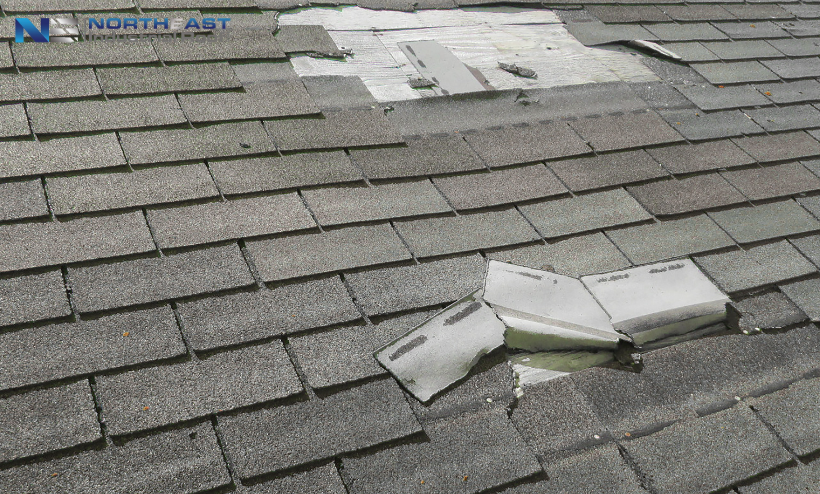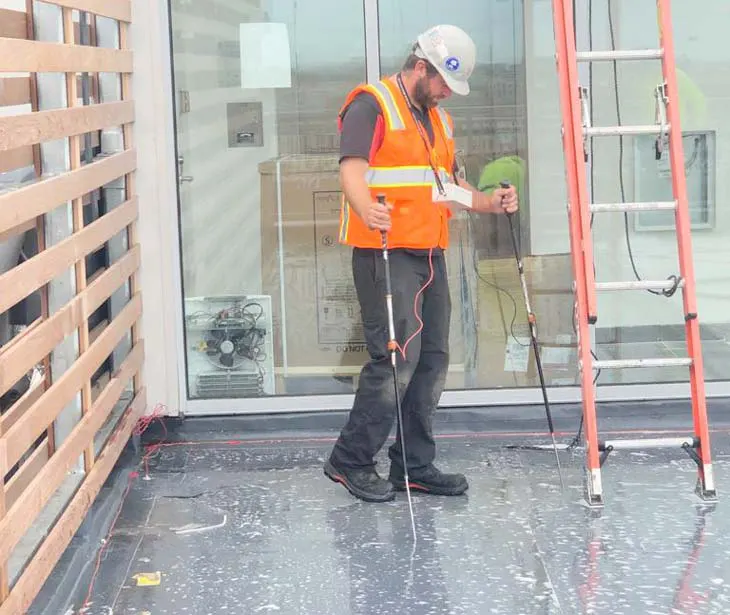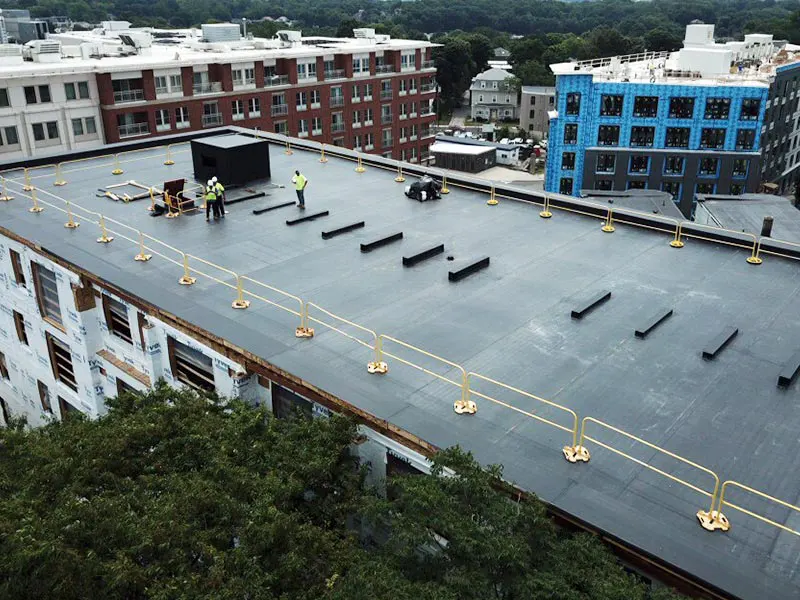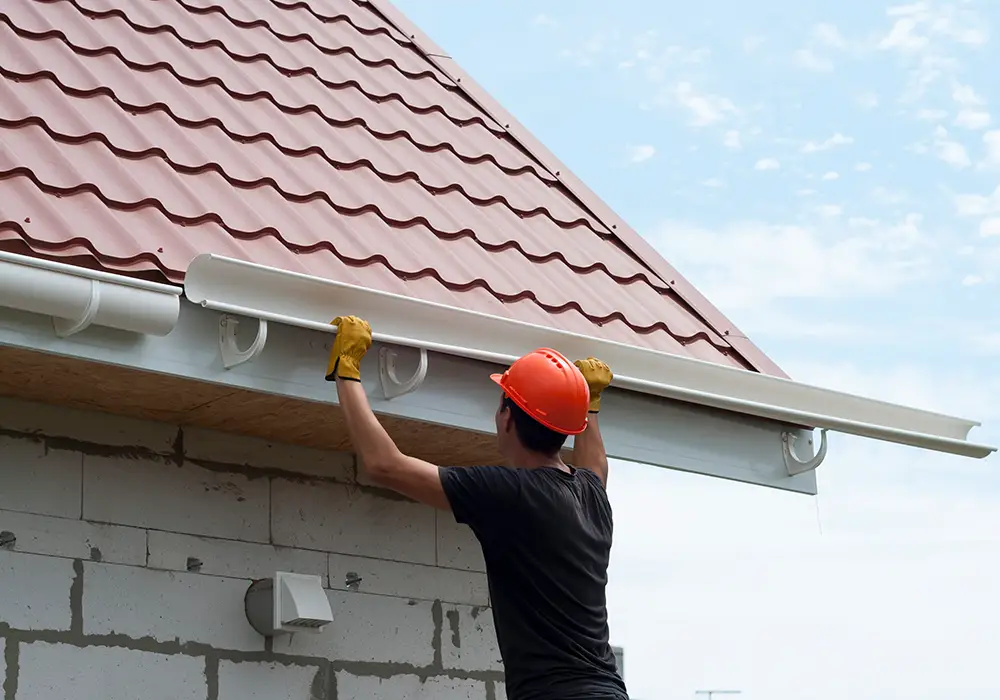The 5 Best Roof Types for Industrial Facilities
March 8th, 2021
Exposed to harsh winters, Atlantic storms, and humid summers, Boston’s industrial facilities need roofs that are tough. More than that, their roofs should also contribute to the facilities’ benefits for both the businesses they house, and their wider communities.
Hitting all of those targets can be tough without expert knowledge. But as one of Boston’s leading industrial roofers, our experience has taught us which roof types are the highest performers. Below, we take a look at the 5 best roofing types available for industrial buildings and examine their strong points.
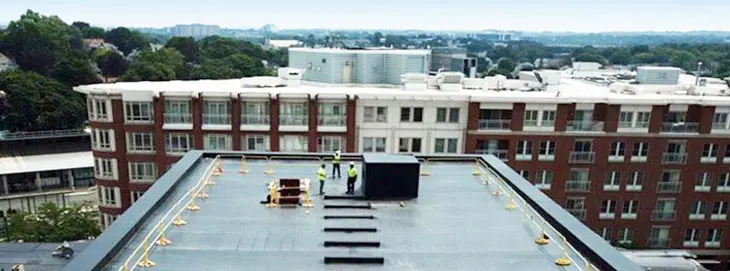
1. Rubber Roofing (EPDM)
Rubber roofing is made from ethylene propylene diene terpolymer (EPDM), a kind of synthetic that is often derived from recycled tires. It is a popular option for the low-slope and flat roof types common among industrial buildings, as it is extremely lightweight and weather resistant.
This type of roofing is particularly sought after for industrial applications because of its hardiness and affordability. EPDM is capable of enduring a vast temperature range (-40℉ – 300℉), and it can stand strong against rain, snow, wind, fire, thermal spikes, and electric shocks. This means that EPDM will not only protect your interior from the worst outdoor weather, but it will also survive accidents that can occur in the industrial environment. Between the low repair costs and the high insulation quality, rubber roofing is also prized for its ability to reduce the costs of maintenance and operations.
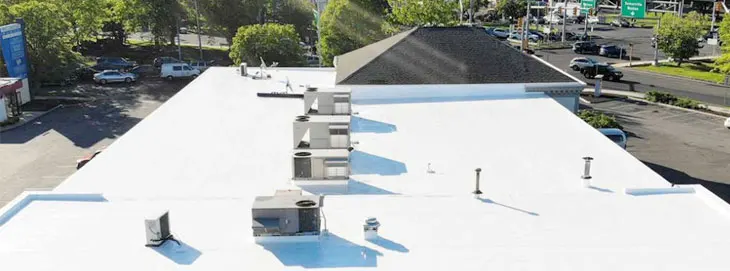
2. Vinyl Roofing (PVC)
Vinyl roofing is made from thermoplastic polyvinyl chloride (PVC). It is a classic material that has for decades been a top choice for efficiency-prioritizing facilities. Energy consumption is vastly mitigated by vinyl roofing, whose reflective quality is known to deflect 80% of solar UV rays. This allows buildings to absorb less heat throughout the day, cutting down the need for powering interior temperature controls.
PVC roofs are built for immense durability. Their breaking point surpasses 350 lbs per square inch, and they are capable of weathering through hurricanes and fires. PVC lasts for over 20 years, and can be recycled and re-used once again simply by thermal reformulation.
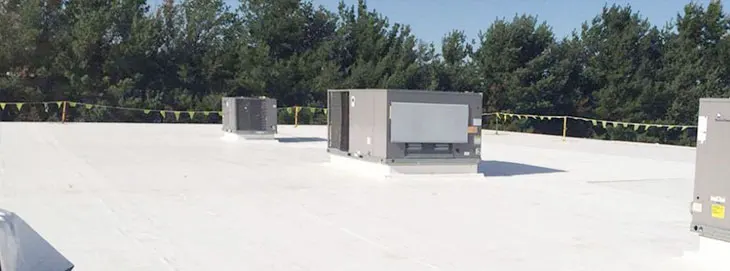
3. Single-Ply Roofing (TPO)
Single-ply roofing is a synthetic thermoplastic polyolefin that is a bit newer on the market. It can be thought of as a variant of rubber roofing. Its solid structure is flexible, making it able to form around a building’s angles and slopes as it naturally settles over time. This makes it particularly resistant to cracking, contributing to its 20+ year lifespan.
TPO roofing is reinforced with a fire retardant, and is also naturally resistant to damages caused by excessive moisture exposure. Hot air-sealed seams give it the ability to stand up to violent winds. Like other options here, TPO is UV reflective, making it an excellent insulator.
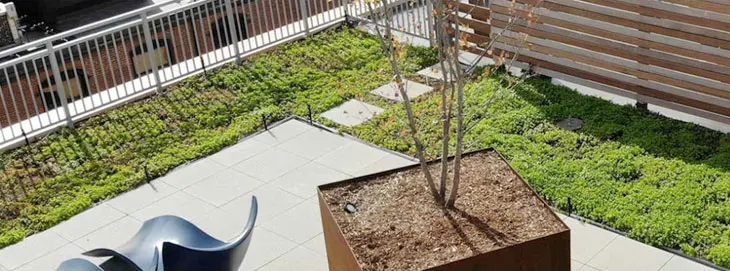
4. Green Roofing
Green roofs are built to allow the growth of vegetation on rooftops. This can help to improve insulation quality, reduce negative environmental impacts, expand natural habitats, and even create a useful space for facility workers or the wider public.
Because green roofing introduces layers of soil and vegetation, it provides a natural barrier against UV rays. The substrate has high volume, but it is actually lighter than many conventional roofing options. These rooftop gardens also utilize a significant portion of the rainwater that falls on buildings, reducing a facility’s runoff by 50-80% and contributing to communal stormwater management.
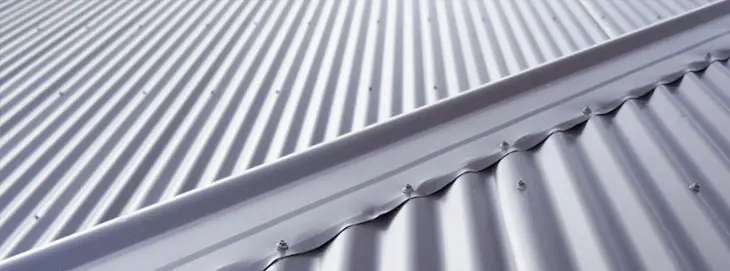
5. Metal Roofing
Metal roofing comprises sheets of metal that are conjoined to cover an entire roof surface. Various types of metal can be used, including steel, zinc, aluminum, and copper. Each offers its own benefits in terms of performance and affordability. Metal roofs can last for several decades, making their ROI an especially attractive perk.
Sustainability is another strong suite of metal. It is naturally reflective, and is often composed of 100% recycled materials. Energy costs are typically reduced by 15-40%. Quality installation can ensure that metal roofs offer great durability in the face of wind, fire, and moisture.
Upgrade Your Facility with Expert Industrial Roofing Services
Our team is ready to help you tackle your facility’s most urgent roofing needs. As one of the Boston metro’s most trusted industrial roofers, we’ve helped numerous factories, warehouses, plants, and other industrial buildings acquire roofing that offers cost-savings, energy efficiency, and maximal protection for interior operations and equipment.
Request a quote to get a professional assessment of your roofing project.

